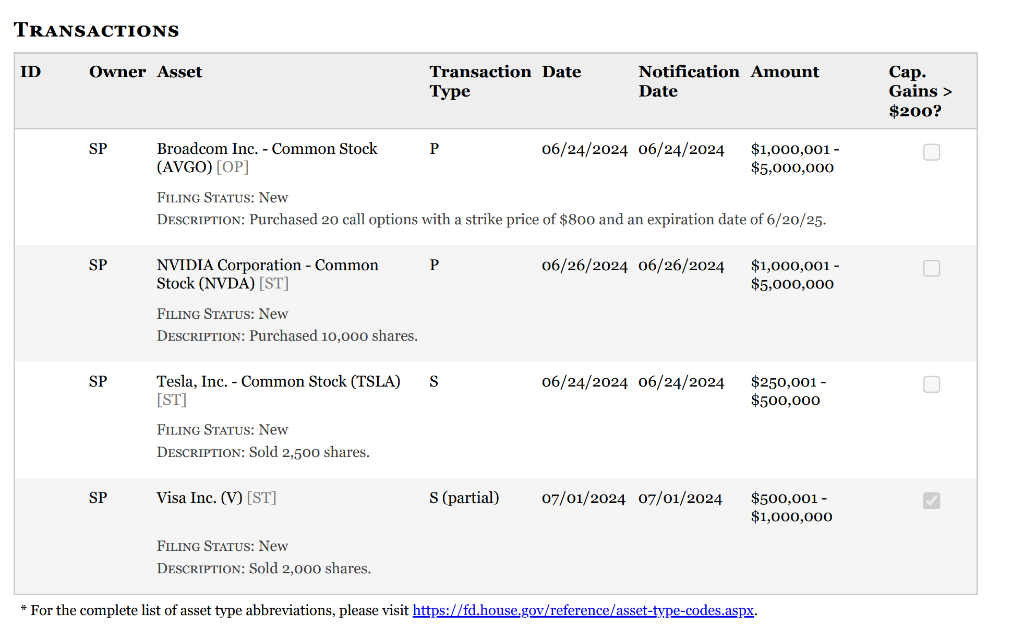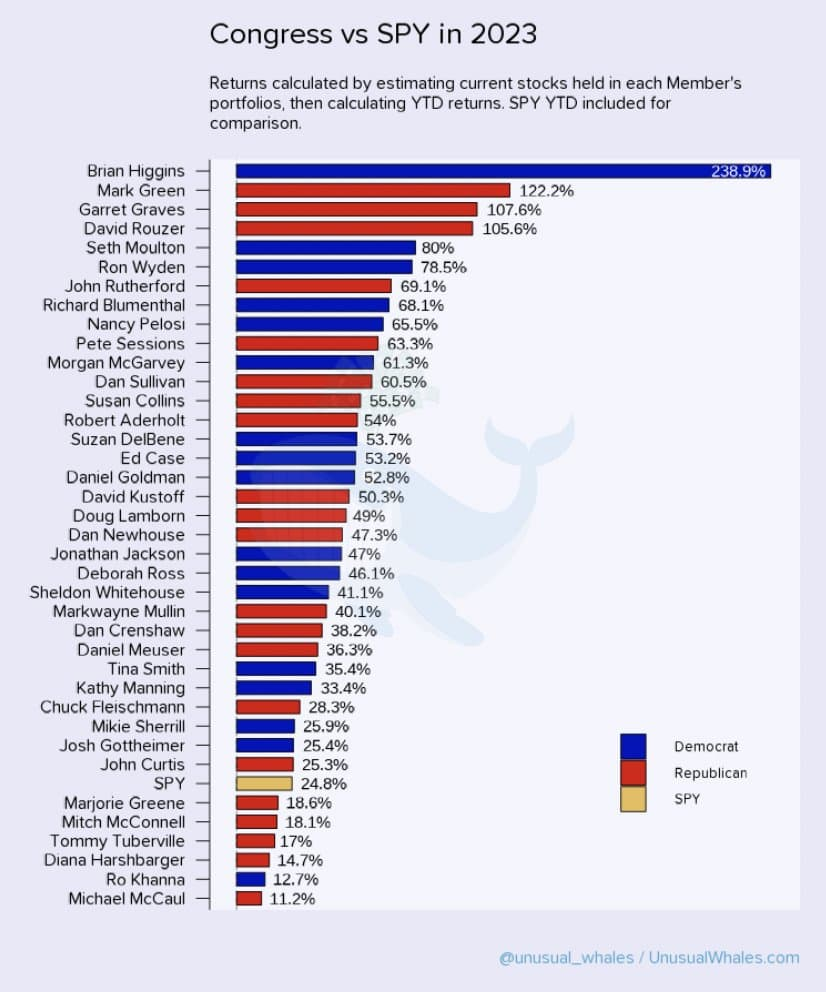Nancy Pelosi recently revealed her investment portfolio, but of course, she largely stays out of the trades herself, with her husband, Paul Pelosi, doing all the work.Similar to previously, the trades through June 24 were focused on AI-related companies.
BUY.
$NVIDIA Corp(NVDA)$ added 10,000 shares (potentially call option Call strike) valued at between $1 million and $5 million.
$Broadcom(AVGO)$ : purchased 20 Call Options with a strike price of $800 and an expiration date of June 20, 2025 valued at between $1M and $5M.
Sells.
$Tesla Motors(TSLA)$ (Tesla): 2,500 shares sold, valued between $250,000 and $500,000
$Visa(V)$ : 2,000 shares sold, valued between $500,000 and $1 million
NVIDIA and Broadcom, to name a few, have consistently been bets on the AI sector and have stepped on the right leading stocks.
It's possible that Tesla is still trading unprofitable, due to the fact that it has underperformed over the course of the year, only just bouncing back in late June and early July.
Visa is a ticket that the Pelosi's actually first bought in 2011, when the entry price was less than $30, and the shares are now trading at 270.
The Pelosi's trades are characterized by several things
Focus on tech stocks, where members of Congress are likely to have more exposure to the management of big tech companies, maintaining relationships as well as holding shares.Portfolios are focused on large tech companies, $Apple(AAPL)$ $Alphabet(GOOGL)$ $Alphabet(GOOG)$ as well as companies with close ties to management such as $Walt Disney(DIS)$ etc.
Often uses call options to trade, which provides greater leverage, but of course comes with higher risk.The good thing is that the U.S. stock market has been bullish and has not amplified such risks.But they mostly use forward Calls, which are a much more efficient use of capital than outright cash purchases.Forward options have a couple of characteristics that don't make them suitable for the average investor:
Somewhat illiquid;
Deep in-the-money Calls are good for going to exercise;
More time value and could lose value if it underlying has no direction.
Long-term holding strategy: Some of his investments show a tendency to hold for the long term.For example, he purchased options on Apple and Disney in December 2020 with expiration dates of September 2022, respectively.
Of course, due to the special status of members of Congress, their secondary market transactions are often controversial: although there is a requirement in the relevant Act that trades by members of Congress need to be disclosed within 45 days through periodic transaction reports (periodic transaction report), members of Congress may have access to non-public information, and the timing of Paul Pelosi's trades oftentriggered controversy and public discussion.
Additionally, due to the success of the Pelosi family's investments, investment products and apps have emerged that specialize in tracking and mimicking their trades.Of course, that includes other members of Congress, and with 2023 performance, Nancy Pelosi's returns rank only 9th among members of Congress.



Comments